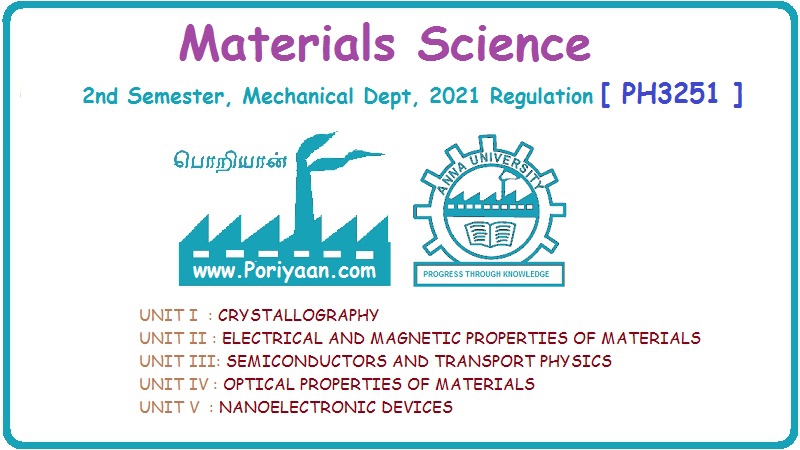Materials Science: Unit IV: Optical Properties of Materials
Electro-Optic Effects
Optical Properties of Materials
Isotropic transparent materials such as glass do not exhibit double refraction under ordinary circumstances.
ELECTRO-OPTIC EFFECTS Isotropic transparent materials such as glass do not exhibit double refraction under ordinary circumstances. However, they acquire the optical properties of a uniaxial crystal under the action of external forces. Consequently, they exhibit double refraction. The appearance of double refraction under the influence of an external agent is known as artificial double refraction or induced birefringence. The direction of the optical axis in such materials will be collinear with the direction of the external force. The action of the external force is to cause distortion of the molecular arrangement within the material. This inturn transforms the isotropic substance into an anisotropic substance. The induced birefringence disappears as soon as the external force is removed. The materials which experience a change in their optical behaviour under the electric field field are called electro-optic materials. This optical effects are known as electro-optic effects.
Materials Science: Unit IV: Optical Properties of Materials : Tag: : Optical Properties of Materials - Electro-Optic Effects
Related Topics
Related Subjects
Materials Science
PH3251 2nd semester Mechanical Dept | 2021 Regulation | 2nd Semester Mechanical Dept 2021 Regulation
